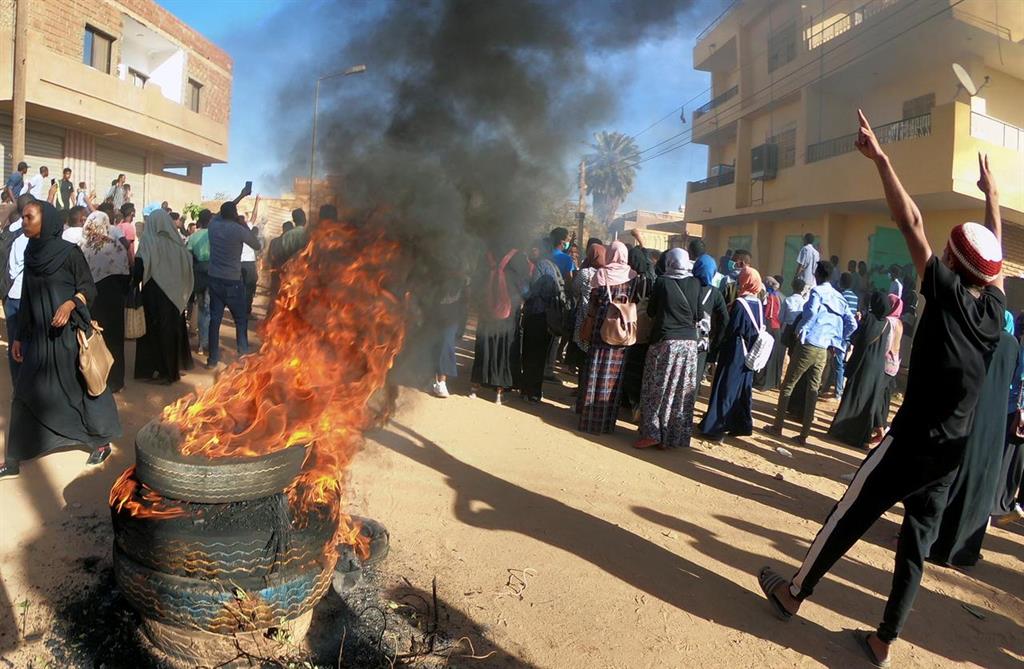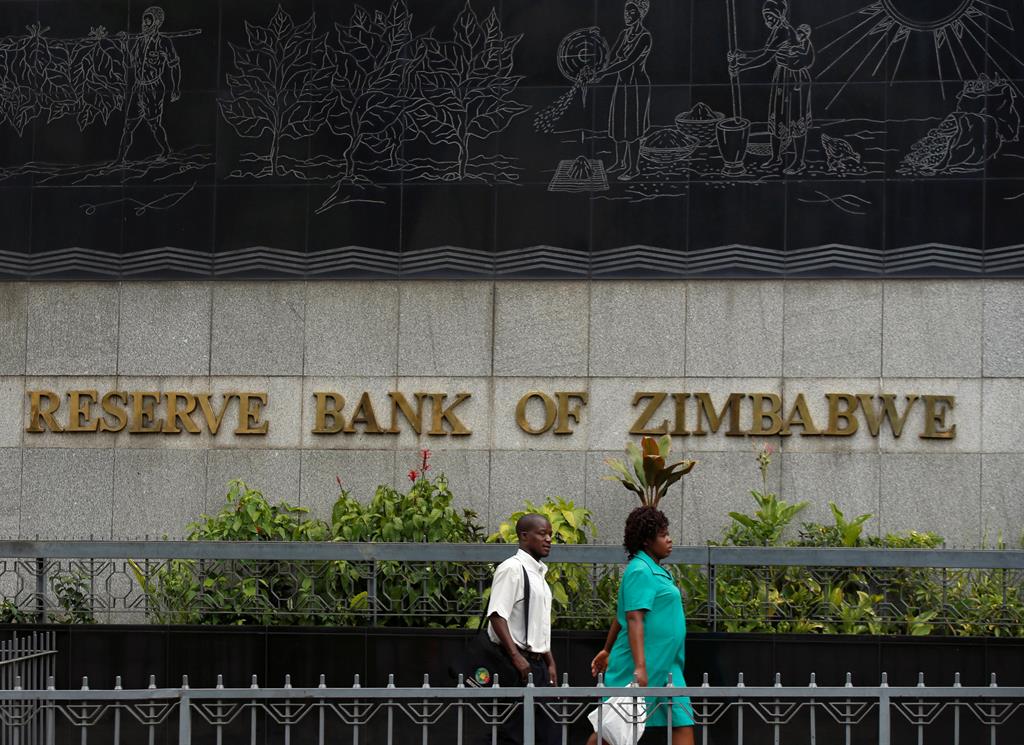Africa Briefs
SARB: Another rate cut expected
The South Africa Reserve Bank is expected to cut interest rates by 50 basis points on Thursday to a record low of 3.75% to ease the pain of the country's recession, as this quarter shows signs of a steep downturn due to limited economic activity, a Reuters poll found.
"As the negative impact of the continued lockdown becomes more clearly quantifiable, there is room for a further rate cut of 50 basis points given current inflationary expectations," said Frank Blackmore, an economist at EF Consult.
Nine of 20 economists surveyed in the past week said the central bank would cut rates by 50 basis points to 3.75% next week. Four expect just a quarter point trim. Three said the repo rate would be eased by 75 basis points and three expect no change.
In the 2008/09 recession, the SARB cut rates by a cumulative 700 basis points through 2012 to stimulate the economy.
This quarter is expected to be the deepest contraction in South Africa's history at 36.2%, far gloomier than last month's 23.0% prediction. – Nampa/Reuters
Zim to circulate higher bank notes
Zimbabwe will introduce higher denomination bank notes to increase the amount of cash in circulation, the finance minister said in a government notice on Thursday, at a time inflation is soaring and pushing prices beyond the reach of the majority.
The country brought back the discredited Zimbabwe dollar currency last year in June after a decade of dollarisation. The move failed to end severe cash shortages and unleashed inflation, which reached 676.39% in March, one of the highest in the world.
Mthuli Ncube said the central bank would start circulating 10 and 20 Zimbabwe dollar (US$0.80) notes. Until now, the highest denomination was a 5 Zimbabwe dollar bank note.
Although the central bank has previously said it would not print money to finance the budget, many Zimbabweans have bad memories of the central bank's money printing activities that caused hyperinflation a decade ago, wiping pensions and savings.
Economic analysts say the government's budget is under pressure from spending to combat the coronavirus outbreak, which will force authorities to resort to printing money, stoking inflation further. – Nampa/Reuters
Sudan plans cash transfer
Sudan's finance minister on Thursday laid out a system of money transfers to the poor in a step towards removing costly fuel subsidies to end an economic crisis.
The new civilian government is trying, with the help of donors, to launch a series of economic and political reforms after veteran ruler Omar al-Bashir was ousted in April 2019.
Finance minster Ibrahim Elbadawi said on state television poor people will get 500 Sudanese pounds (US$9.09) a month from the second half of the year. Some 65% of the population live below the poverty line.
Retired public servants will also see their monthly pensions increased, he said. Sudan had already announced a rise in public salaries.
Shortages of bread, fuel and medicine coupled with hefty price rises triggered the protests that led to Bashir’s toppling. Inflation is running at more than 80%, according to official statistics. – Nampa/Reuters
Africa to get internet boost
Telecoms and internet giants unveiled Thursday a mammoth project to lay a subsea cable around Africa to boost internet access to the underserved continent.
The consortium, which includes China Mobile International, Facebook, Orange and Vodafone, said a cable 37 000 km long will make landfall in 16 countries in Africa and the Middle East.
Namibia is not listed as one of the countries.
"The system is expected to go live in 2023/4, delivering more than the total combined capacity of all subsea cables serving Africa today," said the group, which includes regional operators.
The cable will be one of the longest in the world, providing the continent with new high-speed links to Europe and the Middle East. – Nampa/AFP
The South Africa Reserve Bank is expected to cut interest rates by 50 basis points on Thursday to a record low of 3.75% to ease the pain of the country's recession, as this quarter shows signs of a steep downturn due to limited economic activity, a Reuters poll found.
"As the negative impact of the continued lockdown becomes more clearly quantifiable, there is room for a further rate cut of 50 basis points given current inflationary expectations," said Frank Blackmore, an economist at EF Consult.
Nine of 20 economists surveyed in the past week said the central bank would cut rates by 50 basis points to 3.75% next week. Four expect just a quarter point trim. Three said the repo rate would be eased by 75 basis points and three expect no change.
In the 2008/09 recession, the SARB cut rates by a cumulative 700 basis points through 2012 to stimulate the economy.
This quarter is expected to be the deepest contraction in South Africa's history at 36.2%, far gloomier than last month's 23.0% prediction. – Nampa/Reuters
Zim to circulate higher bank notes
Zimbabwe will introduce higher denomination bank notes to increase the amount of cash in circulation, the finance minister said in a government notice on Thursday, at a time inflation is soaring and pushing prices beyond the reach of the majority.
The country brought back the discredited Zimbabwe dollar currency last year in June after a decade of dollarisation. The move failed to end severe cash shortages and unleashed inflation, which reached 676.39% in March, one of the highest in the world.
Mthuli Ncube said the central bank would start circulating 10 and 20 Zimbabwe dollar (US$0.80) notes. Until now, the highest denomination was a 5 Zimbabwe dollar bank note.
Although the central bank has previously said it would not print money to finance the budget, many Zimbabweans have bad memories of the central bank's money printing activities that caused hyperinflation a decade ago, wiping pensions and savings.
Economic analysts say the government's budget is under pressure from spending to combat the coronavirus outbreak, which will force authorities to resort to printing money, stoking inflation further. – Nampa/Reuters
Sudan plans cash transfer
Sudan's finance minister on Thursday laid out a system of money transfers to the poor in a step towards removing costly fuel subsidies to end an economic crisis.
The new civilian government is trying, with the help of donors, to launch a series of economic and political reforms after veteran ruler Omar al-Bashir was ousted in April 2019.
Finance minster Ibrahim Elbadawi said on state television poor people will get 500 Sudanese pounds (US$9.09) a month from the second half of the year. Some 65% of the population live below the poverty line.
Retired public servants will also see their monthly pensions increased, he said. Sudan had already announced a rise in public salaries.
Shortages of bread, fuel and medicine coupled with hefty price rises triggered the protests that led to Bashir’s toppling. Inflation is running at more than 80%, according to official statistics. – Nampa/Reuters
Africa to get internet boost
Telecoms and internet giants unveiled Thursday a mammoth project to lay a subsea cable around Africa to boost internet access to the underserved continent.
The consortium, which includes China Mobile International, Facebook, Orange and Vodafone, said a cable 37 000 km long will make landfall in 16 countries in Africa and the Middle East.
Namibia is not listed as one of the countries.
"The system is expected to go live in 2023/4, delivering more than the total combined capacity of all subsea cables serving Africa today," said the group, which includes regional operators.
The cable will be one of the longest in the world, providing the continent with new high-speed links to Europe and the Middle East. – Nampa/AFP






Comments
Namibian Sun
No comments have been left on this article